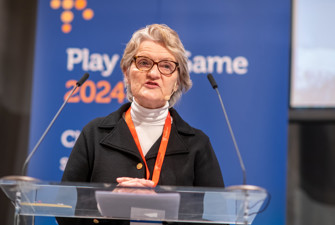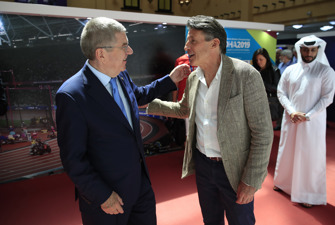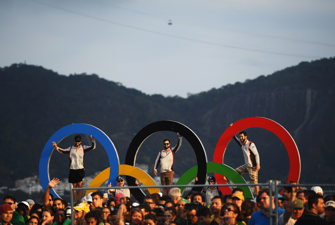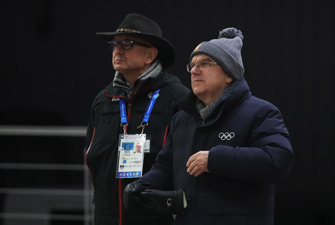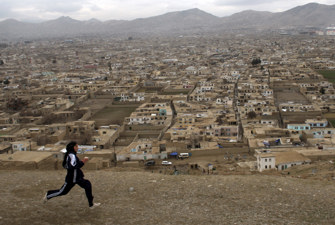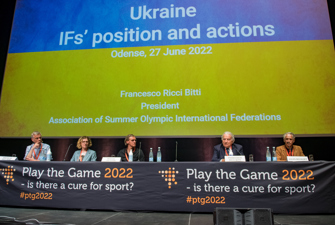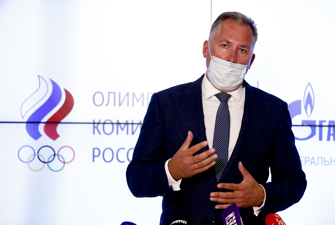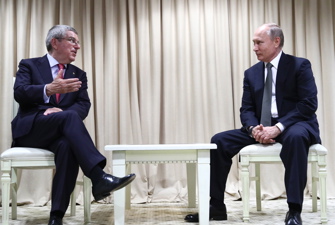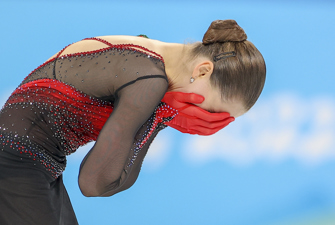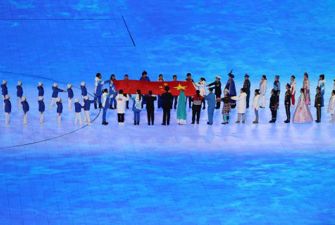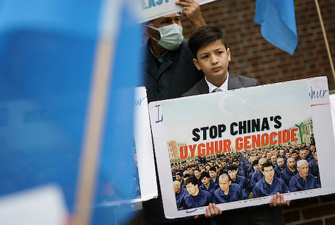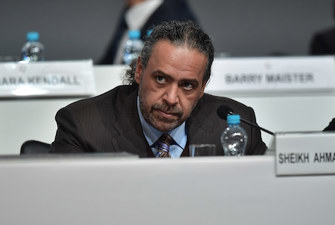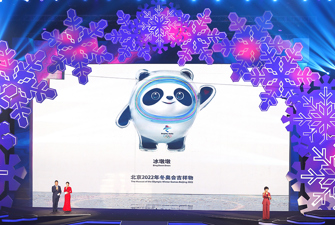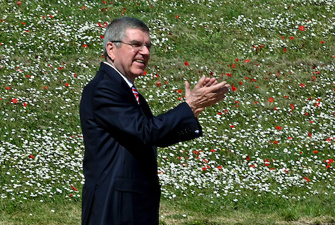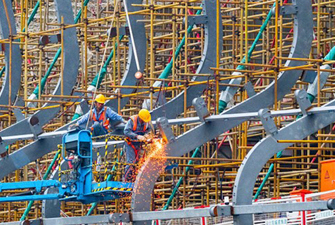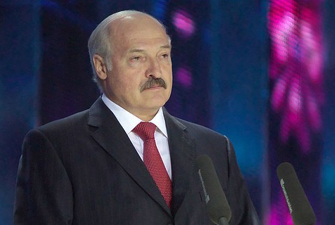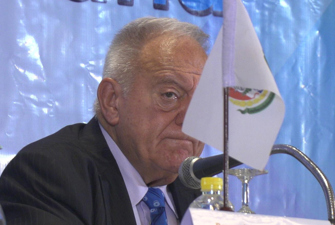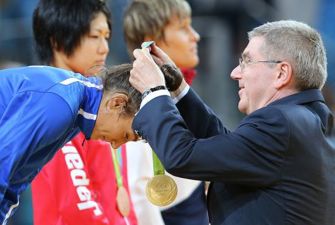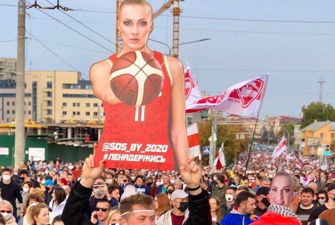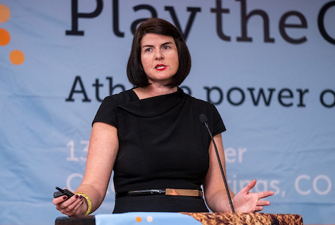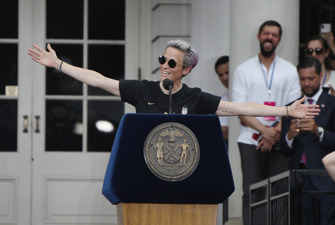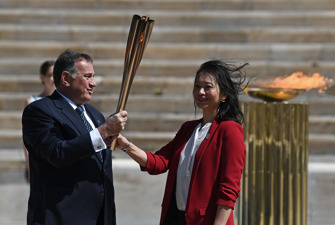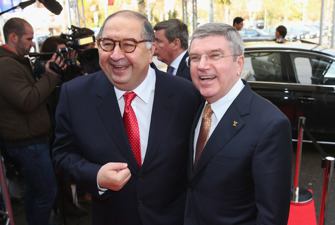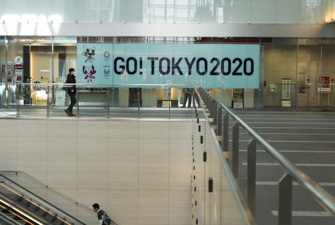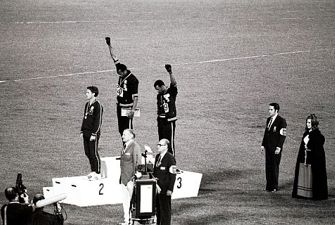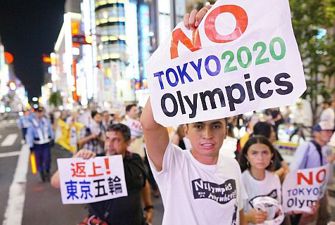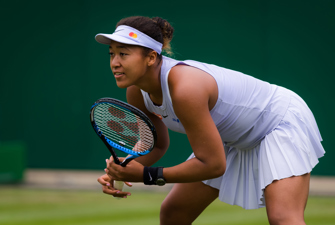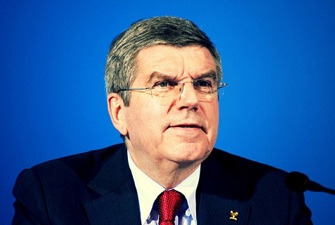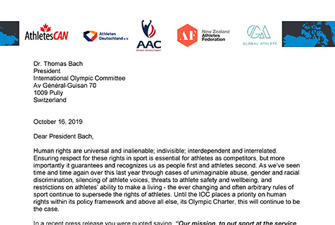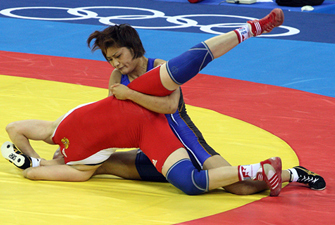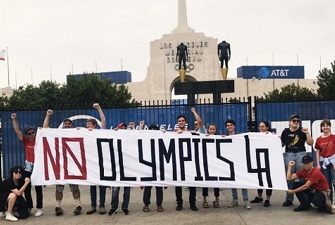IOC President holds on to power while federations face financial problems
ANALYSIS: Investigative reporter Jens Weinreich discloses how IOC President Thomas Bach manages the crisis around the Tokyo Games. Criticism is stifled and there is no financial plan for sports federations affected by the postponement.
Decisions come thick and fast in these unique weeks. Exactly two weeks ago I argued that there will of course be no Olympics Games in Tokyo in 2020. This statement was neither prophetic nor particularly original. It was primarily based on common sense and an analysis of the dramatic situation in the midst of a global pandemic. Large parts of the world were already standing still.
At that point, however, the International Olympic Committee (IOC) saw no need to act promptly.
On 22 March, after one of the Executive Board's conference calls, the IOC announced in a terrifyingly cold tone: "The IOC EB emphasised that a cancellation of the Olympic Games Tokyo 2020 would not solve any of the problems or help anybody. Therefore, cancellation is not on the agenda."
The term "pandemic" did not appear in the statement. The IOC only spoke of "new outbreaks of COVID-19 in different countries on different continents". Once again, no mention was made of Italy, the host of the 2026 Winter Olympics with the Lombardy and Milan.
In this statement of 22 March, the athletes who had called for "humanity" and early action with their many public statements were not mentioned as the stakeholders with whom the IOC immediately wanted to enter into negotiations on emergency scenarios.
However, IOC President Thomas Bach published a letter to “the global athlete community” at the same time. In it he claimed: "In this unprecedented crisis we are all united."
The opposite was the case.
Two days later, on 24 March, this IOC crisis timetable was scrapped again. The summer Games were suddenly moved to 2021. So suddenly that the Executive Board only voted on it when the move had already been announced live on television by Japan's Prime Minister Shinzo Abe.
And again the IOC gave itself an absurd time frame. The new date of the Games would be announced within three weeks. But again, the IOC was forced to act. The dates were announced only six days later: the Olympic Games 2020 are to be held from 23 July to 8 August 2021. The Paralympics are scheduled to take place from 24 August to 5 September 5 2021.
If the corona pandemic is defeated by then.
A single narrative: Tokyo is a beacon of hope
The IOC leadership has made an increasing effort to control the narrative. One message has been sold on all channels since March 24: "Tokyo could stand as a beacon of hope to the world during these troubled times and the Olympic flame could become the light at the end of the tunnel in which the world finds itself at present."
These buzzwords - flame, hope, end of the tunnel - have been spread by Bach, his propaganda department, the IOC business partners from TV stations and the usual spin doctors 24/7 since then. Garnished with messages of the unity of the Olympic movement. Unity is everything. This is otherwise only known from totalitarian regimes.
The critic who did not want to be a critic
That is the best description of the practices under IOC President Thomas Bach. It becomes absurd when one of the few who had expressed timid criticism in telephone and video conferences with the IOC President later denies having expressed criticism at all.
The story concerns Frenchman David Lappertient, president of the Union Cycliste Internationale (UCI). My sources, who all took part in the call, told me about Lappartient's comments on 26 March during the first post-game conference call.
Lappartient is said to have recalled that Bach had called for the solidarity of the professional federations on 17 March 17 but had failed to show solidarity himself, because the federations were presented with a fait accompli a week later. From my point of view, and from the point of view of my sources, this can certainly be described as a cautious criticism of the IOC President. That's how I described it in an article for the German magazine DER SPIEGEL.
Some days after publication I received a statement from the UCI. It says:"The UCI President would like to make it clear that he made no comment of the kind, either during the meeting of the International Olympic Committee (IOC) or in any other context. Mr Lappartient spoke during the video conference to call for International Federations to be united around the IOC and its President Thomas Bach. Mr Lappartient, on behalf of the UCI, clearly supports the measures taken by the IOC."
My sources laugh about this statement and stick to their narrative, which I have truthfully reported.
It's worth to take a moment to think about what this UCI message means.
Above all, it means that the only federation president who voiced something like a critical comment to Bach during the conference call does not want to be called a critic. Instead, he preaches the unity of the movement.
It is, I am sorry to say, a bit like a sect.
In the hour of great need, all family members gather behind their unique, great and wise leader.
No plan to help affected Olympic sports federations
It's all about money.
This is very important:
As of December 31, 2018, the IOC had stashed reserves in the amount of approximately $ 900 million in its Olympic Foundation. Perhaps there are even more at the moment, the annual report for 2019 is not yet available.
However, the IOC has so far not set up an aid fund for affected Olympic sports federations (33 in summer, 7 in winter) or the 206 National Olympic Committees (NOC).
They don't even talk about it. Unlike the world football association FIFA, for example, which is planning such a fund, as Tariq Panja has reported in the New York Times.
The IOC continues to find no words of sympathy for the tragedy in the Olympic host country Italy - let alone an aid fund is being created for Italy.
The IOC merely stated that the Olympic Solidarity programme continued to support athletes and NOC programs as before.
The IOC has so far not made any offers for funding to the federations in the programme of the Tokyo Games, the 28 permanent and the 5 guest sports.
Major problems if television revenues are delayed
The 28 permanent summer sports federations and their umbrella organisation ASOIF are entitled to US $ 590 million from the worldwide Olympic marketing revenues for Tokyo. Such payments are always made after the Games have taken place - after the IOC has collected the majority of the billion-dollar television revenue.
Basically, the federations will finance their operations in the next Olympic cycle from 2021 to 2024 with this money until the next big transfer will be made after the Paris Games in autumn 2024. After the 2016 Games in Rio de Janeiro, $ 540 million were distributed, and federations used that money to finance themselves for the period from 2017 to 2020.
If the shares from television revenues do not arrive before autumn 2021 with a one-year delay, many associations face major problems. Especially since another consequence of the corona pandemic is that federations will lose parts of their own income from sponsorship and TV contracts.
IOC does not want to give all federations an advance
It would have been the most normal thing in the world, if Thomas Bach had told the federations: We will pay you 25 percent in advance from the Olympic revenues - from your Olympic revenues - so you can survive the next year.
He didn't do that. Instead, it is said that bilateral negotiations are now underway.
A member of the Executive Board explained this to me confidentially: "If the President had offered everyone an advance, those federations that did not need the money urgently would also have held their hand out for money.”
But what this influential IOC member forgets in the process: The $ 590 million are not really IOC property - the money is the rightful share of the summer sports federations. Neither the IOC nor Japan can host the Olympic Games without the federations..
Several federation presidents have explained to me that Thomas Bach is now playing out his power by not offering help and an advance payment on his own initiative.
"That he doesn't do this is a signal," says a president. "He shows that you have to approach him and ask him for something. Requests are of course only granted if they follow the rules."
The service requested in return? Unity. Unconditional unity. No contradiction. Subordination.
That's how it works in the Olympic family.
The art of Macciavelli.
Bach strengthens his power base before elections
Bach has another means of pressure: negotiations are already underway as to what share the federations will be paid from the Olympic marketing program for 2021 to 2024. Of course, the associations want more. Perhaps $ 650 million, maybe even $ 700 million.
Such negotiations have been bitter for decades, starting when the first little TV revenue was generated in the 1960s. These negotiations and the share between IOC and the international federations and even among the international federations is the most difficult sports-political science. It is more or less an attempt to square the circle.
In this respect, Thomas Bach - quite a power politician - still profits from the crisis and a difficult situation. He can curb timid criticism among the associations. The top officials, presidents and general directors are lined up behind him. After the IOC acted far too late, Bach sold himself as a terrific crisis manager and strengthened his position again. Nobody can fool him. Challengers are not in sight anyway.
So if the 2021 Olympic Games can be held, the IOC will sell these Games as humanity's victory against the corona virus. Their absurd spin is: The Olympic fire showed the way out of the dark tunnel. So they want to benefit from the corona crisis in many ways.
And, don’t forget, next year there will be elections in the IOC. Bach, who became president in 2013, wants to be elected for another four years.
Read more
- How federations share the revenues from the Olympic Games (03.04.2020)
- Growing pressure as Japan and the IOC play for time (20.03.2020)








